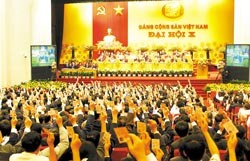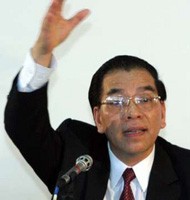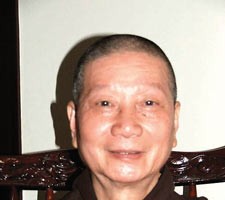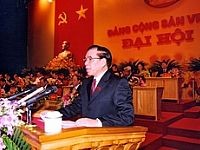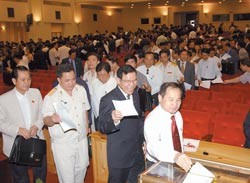According to the ninth-tenure Central Executive Committee’s report on Documents for the 10th Party Congress, delivered by Party General Secretary Nong Duc Manh, one of the goals of the 10th Congress in Ha Noi from April 18 to 25 is to “soon lead our country out of underdevelopment” before 2010. This is a determination of the entire Party and the people after 20 years of renovation.

Viet Nam has attained major achievements since the sixth Party Congress in 1986 initiated doi moi (renovation) policies. Before that time, Viet Nam was suffering from embargo policies and faced with economic crises. There seemed no way out with the country facing food shortage, three-digit inflation, and the people living in hardship. Till now, Viet Nam has created economic development achievements that many friends in the world consider “miracles”.
Viet Nam has enjoyed an annual GDP growth of 7.5% since 1991. Notably, in 2005, the final year of the 2001-2005 socio-economic development plan, Viet Nam made a record GDP growth of 8.4%, the highest over the past nine years, with per capita income being US$640.
At present, Viet Nam has diplomatic relations with 169 countries. Viet Nam has been making great efforts to integrate into the global economy as a member of the ASEAN Free Trade Area (AFTA), the Asia-Europe Meeting (ASEM) forum, the Asia-Pacific Economic Cooperation (APEC) forum. Viet Nam is approaching the final negotiation round to join the World Trade Organization.
It is not difficult to see the Party’s role behind all these achievements via four Party Congresses, which marked milestones in the country’s development. The sixth Congress in 1986 started the doi moi process. The seventh Congress in 1991 worked out policies for the country to pass a transitional period toward socialism. The eighth Congress in 1996 began the industrialization and modernization process. The ninth Congress in 2001 mapped out socio-economic development strategies for the 2001-2010 period to push Viet Nam out of underdevelopment and pave the way for Viet Nam to become a modern industrialized country by 2020.
Less developed countries are classified by UNDP as nations with per capital income lower than US$750. Viet Nam is likely to pass this threshold by 2010. However, we are of the view that the development level of a country is based not only on the per capital income but also on the structure of the economy, social development, cultural and spiritual activities, and the human development index, etc.
Viet Nam has obtained many great achievements over the past 20 years but its economy is still at a low level, science and technology development being still lagging behind other countries in the region and around the world. Besides, Viet Nam is facing big challenges in globalization and complicated political and economic changes worldwide.
The 10th Party Congress is expected to work out policies and measures to accelerate Viet Nam’s development and ensure sustainable development, to early push the country out of underdevelopment. Therefore, the Congress theme is “Improving the leadership capacity and combativeness of the Party, promoting the whole nation’s strength and comprehensively accelerate reforming, quickly leading the country out of the underdeveloped status".
